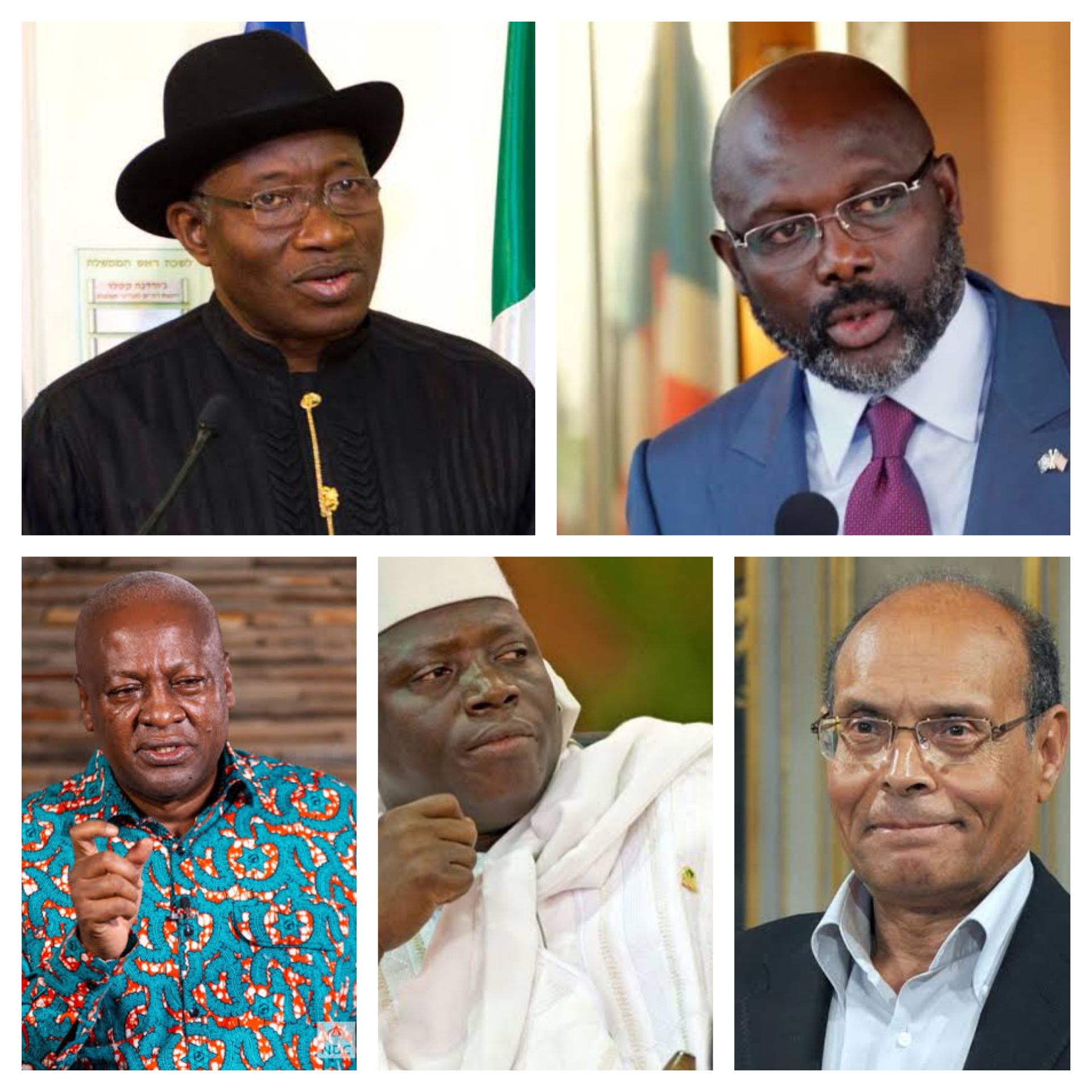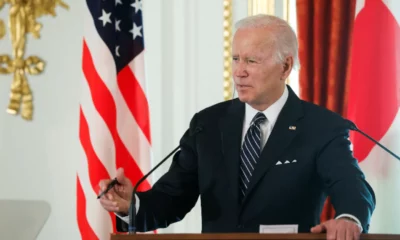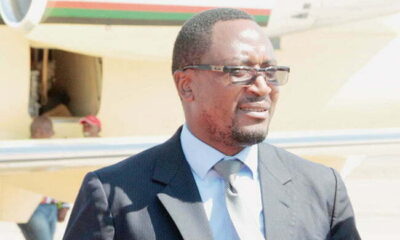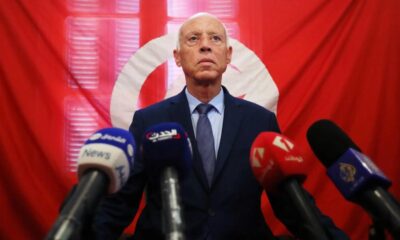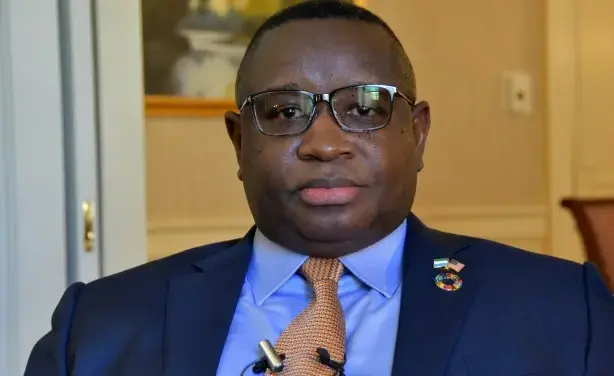In most sports, a reigning champion usually comes into tournaments as one of the favourites for the prize. Still, it hardly is a back-to-back victory guaranteed, particularly in recent history, except in the unique case of the Egypt national football team that won the African Cup of Nations three times consecutively in 2006, 2008, and 2010, and rear performances by Spanish teams Real Madrid and Sevilla, which also both dominated European club football competitions for three straight seasons at different levels in the last decade.
The case is quite different in politics, as most incumbents are like the referenced football teams which go into contests as favourites but, in their case, hardly ever lose. It is so hard to find a sitting president who loses an election, largely because of what is loosely called ‘power of incumbency’, which is diplomatic speak for abuse of the instrumentalities of state power.
In this piece, we present five instances of this rare occurrence in recent history. And yes, former United States President Donald Trump is not on the list; the focus is on Africa here. The incidence of incumbent losses in elections in Africa dates back to 1967 when Abdulrashid Ali Shermake defeated incumbent President Aden Abdullah Daar in Somalia. A couple of other experiences were recorded in the 1990s, notably in 1991 when Frederick Chiluba of the Movement for Multi-Party Democracy defeated incumbent Zambian president Kenneth Kaunda of the United National Independence Party (UNIP), who had been in power since 1964. Nicephore Soglo defeated incumbent Mathieu Kerekou in the Benin Republic in 1991, while the Congo DR, and Malawi also had their fair share of the experience.
Now let’s consider the last five times an African president has been unseated.
1. Tunisia’s Moncef Marzouki
In the country’s first presidential election since independence from France in 1956, and four years after the country’s uprising ignited the Arab Spring, veteran Tunisian politician, Beji Caid Essebsi, in 2014 defeated interim leader of Tunisia, Moncef Marzouki, after securing 5.68% of the vote in the run-off, defeating caretaker president, Moncef Marzouki (44.32%). After Tunisia’s 2011 revolution, which introduced democracy, an elected assembly appointed Marzouki as the interim president to oversee the transition to a new constitution. He was in power for three years until 2014 when he lost out. He now lives in France as a known critic of the incumbent president, and was sentenced for conspiring against state security in 2021.
2. Nigeria’s Goodluck Jonathan
After sixteen years of his party, the Peoples Democratic Party (PDP), being in power following the return to civil rule in 1999, Goodluck Jonathan became a victim of the united opposition force in Nigeria’s 2015 election. A 2013 merger of four political parties: the Action Congress of Nigeria (ACN), the All Nigeria Peoples Party (ANPP), the All Progressives Grand Alliance (APGA), and the Congress for Progressive Change (CPC) produced the ruling All Progressives Congress (APC) to dislodge PDP’s Jonathan’s, which had prided itself as Africa’s biggest party. Jonathan was defeated by perennial contender, Muhammadu Buhari, who scored 15,424,921 votes, which was 53.96% of total votes cast. Jonathan, the incumbent, ended as runner-up with 12,853,16 (44.96%). He was commended for conceding defeat by congratulating Buhari through a phone call before the final announcement. He also did not contest the results at the election tribunal. Jonathan is now a respected voice within the continent as a peace and democracy ambassador. He has been involved in peace and democratic transition talks for the African Union and ECOWAS in Ethiopia and Guinea, among others.
3. Gambia’s Yahya Jammeh
This is arguably the most shocking result on our list. In 2016, Gambia’s Yahya Jammeh, who once claimed a “billion-year” mandate to rule, was forced out of office as his Alliance for Patriotic Reorientation and Construction was defeated by Adama Barrow’s United Democratic Party in an election that marked the first change of presidency in the country since a military coup in 1994, and the first transfer of power by popular election since independence from Britain in 1965. The election dubbed, “one of the biggest election upsets West Africa has ever seen” in a BBC report, saw the incumbent president score 208,487 votes, which was 39.64% of total votes, while the winner and current president, Barrow, had 227,708 (43.29%). Jammeh would later reject the results and call for a new election, sparking a constitutional crisis and unrest, which, according to the United Nations High Commissioner for Refugees, made around 45,000 people flee to Senegal and at least another 800 people flee to Guinea-Bissau. Barrow was eventually sworn in as president on Gambian soil at the embassy in Senegal. Jammeh left the country in an ECOWAS-arranged exile. He now lives in France.
4. Ghana’s John Mahama
The year 2016 was probably one for political underdogs as the continent witnessed another defeat of the sitting president in West Africa, Ghana, with Nana Akufo-Addo winning a tightly contested presidential election against President John Mahama. Sixteen people expressed interest in the country’s top job, thirteen of whom were disqualified due to incorrect filing procedures, including former First Lady, Nana Konadu Agyeman Rawlings.
With 53.85% of the vote, Mr. Akufo-Addo was declared the winner by Ghana’s Electoral Commission (EC), with Mr. Mahama receiving 44.40%. There was a 68.62% turnout. Mahama has had other attempts to return as Ghana’s president, as he contested again in the 2020 election, but Akufo-Addo edged it again with 51.6% of the vote. He remains a presidential hopeful ahead of next year’s election. This time his chances may well be brighter as his arch-rival— Akufo— is constitutionally forbidden to contest after a two-term reign.
5. Liberia’s George Weah
If politics were football, George Weah might have been lucky, but the former football star—the only African with the prestigious Ballon d’Or award—lost his second-term bid as Liberia’s president. The latest “kid” in the losing presidents’ block faced what was somewhat of a political revolt as his once-darling Liberians decided to choose an establishment politician, Joseph Boakai, over him in the election held last month. Weah held a slim lead at 43.83% of the vote, while Boakai had 43.44%, according to tallied results from 100% of polling places in the first round, forcing a run-off in which Boakai defeated Weah by just over one percentage point in the closest runoff in Liberia’s history, with 814,481 (50.64%) to 793,914 (49.36%). The outcome is a sharp contrast to the 2017 election, when Boakai, a former Vice President, was defeated by
Weah garnered 62% of the vote.
It is curious not that in the five last cases reviewed, West Africa boasted four slots, while East and Southern Africa had no instance. While the development might ordinarily infer growth in constitutional democracy in the sub-region, it is paradoxical that it also witnessed the most military coups and ousters of democratically elected presidents in the last five years, as experienced in Mali, Guinea, Burkina Faso, and Niger, and a few other failed attempts in places like Sierra Leone and Gambia.

